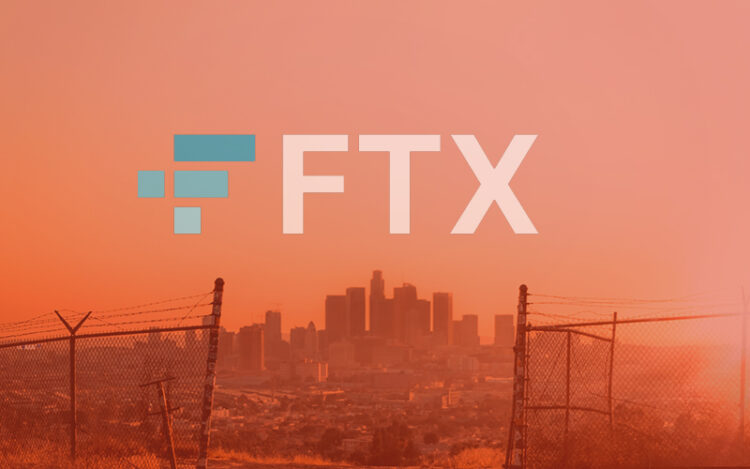Embattled crypto currency exchange FTX announced Friday that it has filed for Chapter 11 bankruptcy protection in the U.S. West Realm Shires Services Inc. (DBA FTX US), Alameda Research LTD., and 130 affiliated companies under the FTX Group banner have filed for Chapter 11 under the U.S. Code in the bankruptcy court in the District of Delaware. The company also announced that high profile CEO Sam Bankman-Fried has resigned from the company and is being replaced by John J. Ray III. On Saturday, Reuters reported that the now former CEO allegedly transferred billions to his trading company Alameda Research using a backdoor in its system. Bankman-Fried has denied this reporting.
In its announcement FTX said that subsidiaries LedgerX LLC, FTX Digital Markets LTD., FTX Australia Pty LTD., and FTX Express Pay LTD. have been excluded from the Chapter 11 proceedings. FTX announced additional information late Friday related to its Chapter 11 Bankruptcy filing announced—most notably that additional company-related entities had been excluded. Those additional excluded entities are FTX Capital Markets LLC, Embed Financial Technologies Inc., and Embed Clearing LLC. FTX also noted that the FTX Group does not include that com,,panies that it does not control own owb such as Bitvo Inc., BTC Africa S.A., and their subsidiaries.
It is likely that every partnership, naming rights, and sponsorships deal FTX had will be terminated in the not-too distant future, as creditors and consumers affected by the collapse of FTX will get priority as creditors.
But one business analyst I spoke to (who asked not to be named) tells me that the FTX Chapter 11 filing may not be legal and might be rejected by the courts because “businesses offering financial services aren’t allowed to file for Chapter 11 bankruptcy to protect consumer assets. That’s why banks can’t do it, but since there is no precedent with crypto exchanges yet, they are trying it as that allows them to freeze all customer assets and use them for a restructure, usually ending in customers losing all assets instead of getting back what is still available now.”
Debt.org notes that “Government agencies, insurance companies, banks, estates, nonbusiness trusts, stockbrokers or commodity brokers, Small Business Administration-licensed investment companies – none of them can file for Chapter 11.”
FTX signed the biggest deal in esports history with TSM in 2021— a 10-year, $210M USD naming rights deal. FTX also signed a seven-year sponsorship deal with Riot Games in the summer of 2021 for the rights to display the crypto exchange’s branding during League of Legends Championship (LCS) matches in North America. In April of this year Brazilian esports organization FURIA signed a one year, $3.2M sponsorship deal with FTX.
On Saturday Esports Insider’s Victor Frascarelli reported that FURIA has officially terminated its deal with FTX.
In the sports world, FTX owns the stadium naming rights to NBA team Miami HEAT (the “FTX Arena”), has a deal with Major League Baseball, and has endorsement deals with Tom Brady, Stephen Curry, and other celebrity sports and entertainment endorsers. On Friday one of those naming rights deals—the FTX Arena in Miami—was officially terminated by the local government and the team: Miami-Dade County and the Miami HEAT announced that they have have terminated their partnerships with FTX, according to Sports Business Journal. In March of 2021 Miami-Dade commissioners greenlit the 19-year, $135M deal with FTX to rename the HEAT’s home venue to FTX Arena.
FTX’s trouble began on Nov. 2, when Coindesk published a report revealing that Bankman-Fried’s Alameda Research had large holdings in FTT tokens, suggesting that FTX and Alameda were very closely tied together. Following this report, Chinese billionaire and rival crypto exchange founder Changpeng Zhao announced that his company would sell its roughly $500M in FTT holdings, prompting investors (spooked by the revelations of the report and Binance’s position on FTT) to sell off roughly $6B in holdings over a three-day period.
Seeking to cover its obligations from the sell-off, FTX announced earlier in the week that Binacne had signed a letter of intent to buy the company for an undisclosed amount, but after one day of looking into its books, Binance announced that it would not be going forward with that transaction.
In the span of nine days, FTX has gone from being valued at $32B (according to a valuation during its most recent recent funding round) to filing for bankruptcy.
On Saturday morning FTX intimated that it might have been hacked; the company said it was investigating suspicious transactions on the exchange. Ryne Miller, the general counsel for FTX’s U.S. wrote on social media that the company was “investigating abnormalities with wallet movements” after crypto research firm Elliptic posted on its blog that $473M in crypto assets were stolen from FTX.
Editor’s note: This story was updated on Nov. 12, 2022 with additional information on excluded companies, the termination of the FTX Arena deal in Miami and the deal with FURIA, reports that the exchange had been hacked, and that the former CEO used a backdoor to transfer billions of dollars to his trading company.
